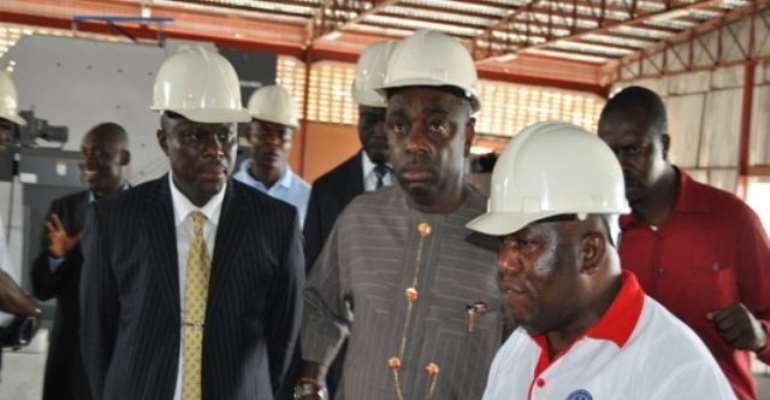Nigerian Content: FG Will Not Encourage Waivers

ABUJA, JUNE 21, (THEWILL) - The Federal Government has alerted the Oil and gas operators and multinational service companies in the country that it would not encourage those seeking waivers in the course of implementing the Nigerian Content Act.
President Goodluck Jonathan on April 22 signed the enabling Act and it specified benchmarks which must be attained from the commencement of the Act, but the expectations could be hampered by current capacity limitations in the country.
But speaking at a meeting of the Implementation Committee of the Nigerian Content Development and Monitoring Board in Abuja on Monday, its Executive Secretary, Engineer Ernest Nwapa clarified that the limitation in the capacity of Local service companies, deficient infrastructure, equipment and facilities would not be an excuse for operators and contractors to seek and obtain frivolous waivers.
According to him, a mechanism would be created by the NCDMB to handle waivers where the capacity did not exist without making waivers a culture of the industry.
"The law requires the Nigerian Content Development and Monitoring Board, to ensure that specific scopes in the schedules to the Act are performed in Nigeria but most of the capacity still resides with the multinational service companies.
"Prior to the Act, multinationals imported their tools and equipment on temporary basis to execute operations without vesting such assets in the Nigerian subsidiaries that win the contracts such that a huge proportion of sums spent on services within Nigeria end up in the companies’ country of origin" Nwapa said.
"In other cases the absence of facilities and infrastructure to perform these scopes in Nigeria result in exporting the contracts abroad where thousands of jobs are created at the expense of the Nigerian economy", Nwapa emphasized.
"The in-country capabilities are effectively constrained by certification, human capital, funding, obsolete facilities, infrastructure and technology but in most cases these can be addressed within 2 to 5 years based on studies carried out by industry."
The Executive Secretary further explained that the Board interprets the 3-year grace period in the waiver clause of the Act as a challenge to the board to work with industry to address the areas of insufficient capacity. Therefore, the waiver mechanism would incorporate interventions for putting the required capabilities in place.
He further stated, "That is the principle we have established and we canvassed it with the operators, multinational service companies, local service providers, investors and oil and Gas industry stakeholders."
He pointed out that the Law holds operators responsible for the compliance of their contactors and subcontractors with the law and called on the operators to take this duty seriously.
Nwapa also noted that some Nigerian service companies were getting bullish by the day and with better understanding of the workings of the industry, serious indigenous companies have an unprecedented opportunity to build relevant capabilities to enable them migrate progressively into the space currently dominated by the multinational service companies.
On the implementation of the Act, the Executive Secretary informed that the Board had successfully completed the first phase of transition to ensure that industry operations were not disrupted and proper understanding of the provisions by the key industry stakeholders.
He charged stakeholders to make useful input that would help the Board fine tune provisions of the Nigerian Content Regulations, which the Honourable Minister of Petroleum would make to clarify any grey areas in the Act for smooth implementation.
He said, "If there is any area in the Act that needs definitions and further clarifications, the board can make suggestions to the Minister to that effect. The Board also has the authority to issue procedures on how any of these things can be done."
 
